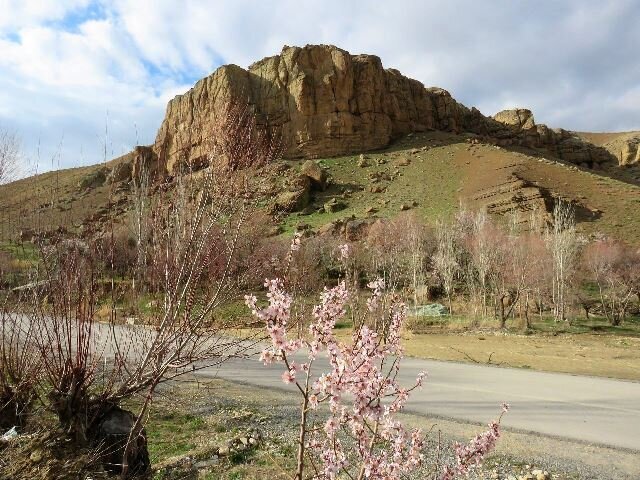Another part of temple, where Avicenna jailed, unearthed in central Iran

TEHRAN – Another part of an ancient fire temple, which is believed to be the place where Avicenna, the illustrious Persian polymath was exiled to and jailed, has recently been unearthed in a rural district, central Iran.
“Another part of an ancient fire temple, which is located near Fardeqan village of Markazi province, has recently been excavated in a fresh round of archaeological survey underway on [the previously-found] monument,” senior archaeologist Mohsen Karimi said on Monday, ISNA reported.
“The architectural layout of the fire temple is in the form of Chartaqi (a prominent element in Iranian architecture)…. and according to a series of field and comparative studies, the fire temple should be the one cited in historical documents as once being a place where Ibn Sina (often known in the West as Avicenna) was exiled to and imprisoned for a while….”
Avicenna (born 980, near Bukhara, Iran [now in Uzbekistan]—died 1037, Hamadan, Iran) was the most famous and influential of the philosopher-scientists of the medieval Islamic world. He was particularly noted for his contributions in the fields of Aristotelian philosophy and medicine. He composed the Kitab al-shifa (Book of the Cure), a vast philosophical and scientific encyclopedia, and Al-Qanun fī al-ṭibb (The Canon of Medicine), which is among the most famous books in the history of medicine.
AFM/MG
Leave a Comment